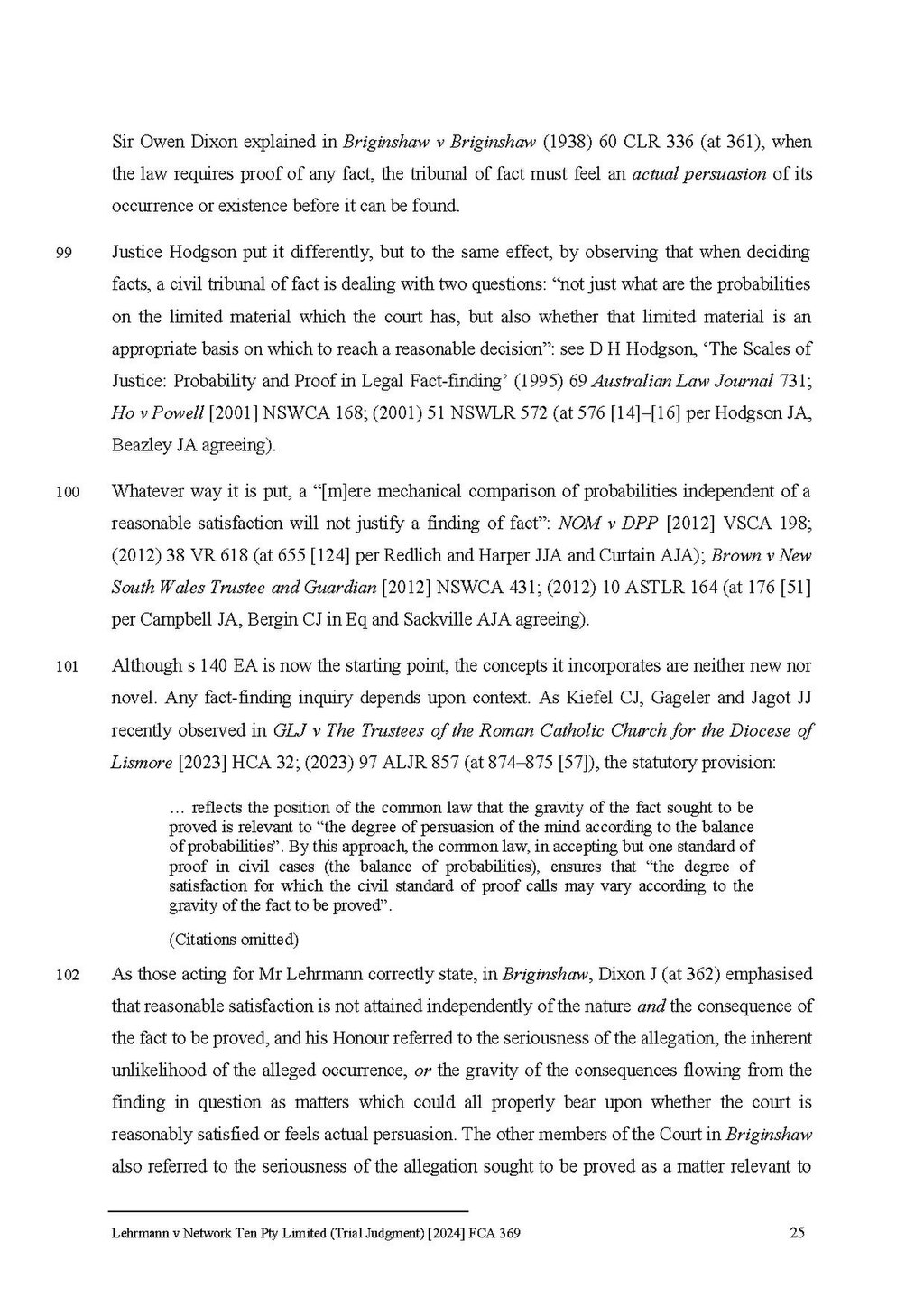Sir Owen Dixon explained in Briginshaw v Briginshaw (1938) 60 CLR 336 (at 361), when the law requires proof of any fact, the tribunal of fact must feel an actual persuasion of its occurrence or existence before it can be found.
99 Justice Hodgson put it differently, but to the same effect, by observing that when deciding facts, a civil tribunal of fact is dealing with two questions: "not just what are the probabilities on the limited material which the court has, but also whether that limited material is an appropriate basis on which to reach a reasonable decision": see D H Hodgson, 'The Scales of Justice: Probability and Proof in Legal Fact-finding' (1995) 69 Australian Law Journal 731; Ho v Powell [2001] NSWCA 168; (2001) 51 NSWLR 572 (at 576 [14]–[16] per Hodgson JA, Beazley JA agreeing).
100 Whatever way it is put, a "[m]ere mechanical comparison of probabilities independent of a reasonable satisfaction will not justify a finding of fact": NOM v DPP [2012] VSCA 198; (2012) 38 VR 618 (at 655 [124] per Redlich and Harper JJA and Curtain AJA); Brown v New South Wales Trustee and Guardian [2012] NSWCA 431; (2012) 10 ASTLR 164 (at 176 [51] per Campbell JA, Bergin CJ in Eq and Sackville AJA agreeing).
101 Although s 140 EA is now the starting point, the concepts it incorporates are neither new nor novel. Any fact-finding inquiry depends upon context. As Kiefel CJ, Gageler and Jagot JJ recently observed in GLJ v The Trustees of the Roman Catholic Church for the Diocese of Lismore [2023] HCA 32; (2023) 97 ALJR 857 (at 874–875 [57]), the statutory provision:
… reflects the position of the common law that the gravity of the fact sought to be proved is relevant to "the degree of persuasion of the mind according to the balance of probabilities". By this approach, the common law, in accepting but one standard of proof in civil cases (the balance of probabilities), ensures that "the degree of satisfaction for which the civil standard of proof calls may vary according to the gravity of the fact to be proved".
(Citations omitted)
102 As those acting for Mr Lehrmann correctly state, in Briginshaw, Dixon J (at 362) emphasised that reasonable satisfaction is not attained independently of the nature and the consequence of the fact to be proved, and his Honour referred to the seriousness of the allegation, the inherent unlikelihood of the alleged occurrence, or the gravity of the consequences flowing from the finding in question as matters which could all properly bear upon whether the court is reasonably satisfied or feels actual persuasion. The other members of the Court in Briginshaw also referred to the seriousness of the allegation sought to be proved as a matter relevant to
